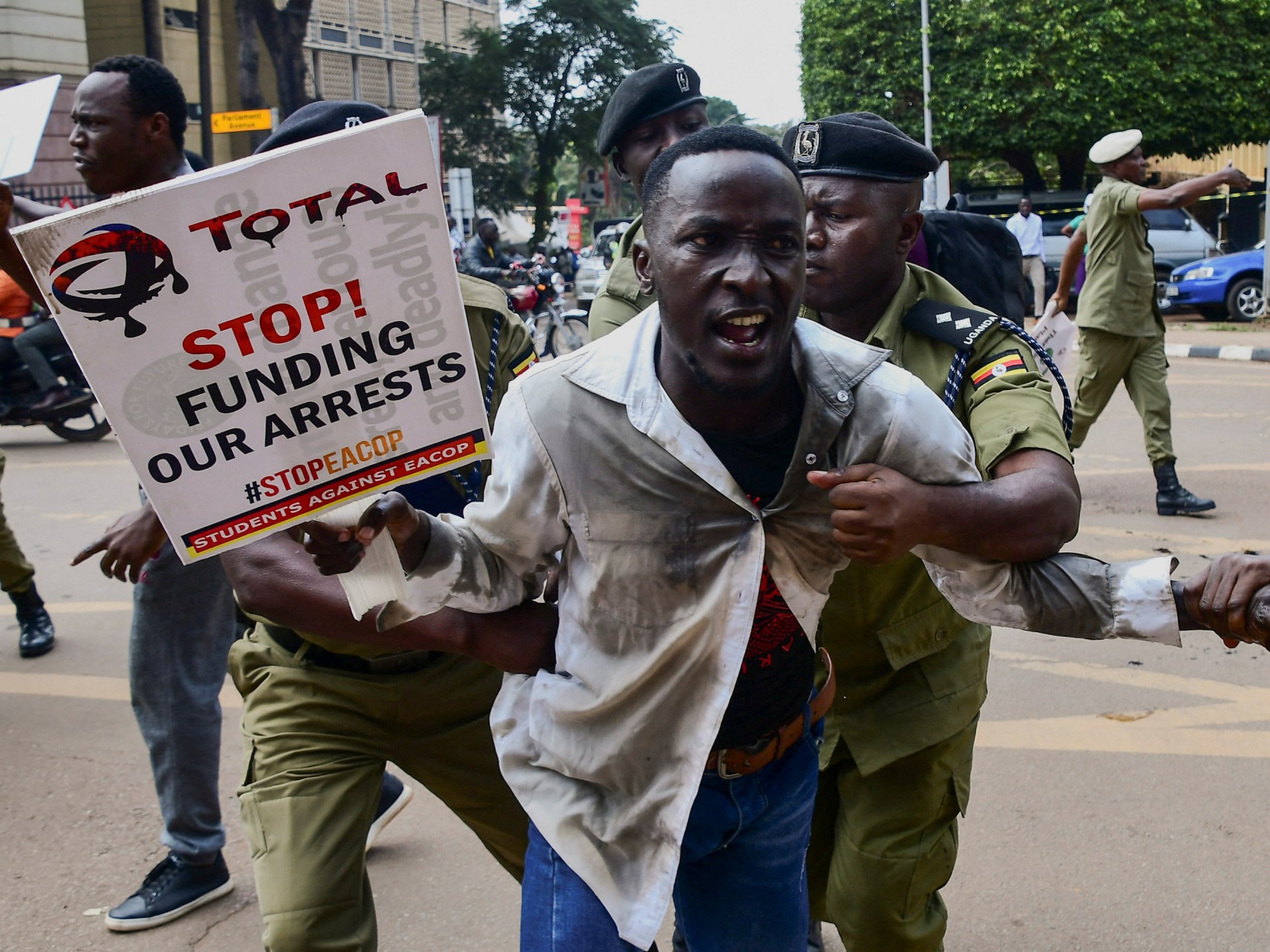
Last year was the hottest on record, with extreme weather events in many corners of the globe. It was also the year in which countries reached a landmark agreement at the UN Climate Conference (COP28) to begin “transitioning away from fossil fuels”.
If governments are to comply with this agreement and avert global climate collapse, there cannot be any new expansion of coal, oil and gas production. This includes the East African Crude Oil Pipeline (EACOP), one of the largest and most controversial fossil fuel projects currently under development.
Financing for EACOP is yet to be secured, but if it is and the project moves forward, a 1,443km (897-mile) pipeline will stretch from oil fields in western Uganda to the port of Tanga in eastern Tanzania.
The project’s completion would not only contribute to increased greenhouse gas emissions which fuel climate change but also harm local communities. That is why, Human Rights Watch is calling on insurance firms to stop providing support for it.
The pipeline is planned to traverse some of Africa’s most sensitive ecosystems, including Murchison Falls National Park and the Murchison Falls-Albert Delta Ramsar site. Pipeline ruptures, inadequate waste handling, and other pollution impacts would cause significant damage to the land, water, air and the species that rely on them.
Our research found that the project’s initial land acquisition process has already devastated thousands of people’s livelihoods in Uganda, causing food insecurity and household debt that has resulted in children dropping out of school.
During our interviews with local communities, many described being largely self-sufficient before the project began, using revenue from coffee, bananas and other cash crops to pay for school fees and other household expenses. When their land was allocated for the pipeline construction, they were not compensated immediately for it.
They waited an average of three to five years after the land evaluation process took place, and interviewees repeatedly told Human Rights Watch that the payments they received were not adequate to purchase replacement land. They said they were worse off than they were previously.
While they were waiting for compensation, many farmers understood that they were not permitted to access their land to tend perennial crops, and were therefore deprived of crucial income.
Residents described how the payment delays impacted their food security, pushing them to sell household assets, including livestock, or borrow money from predatory lenders at excessive rates to buy the food they would have previously grown on their plots and cover other expenses. This has left many families poorer and more insecure about their future.
If the pipeline is completed, more than 100,000 people in Uganda and Tanzania will permanently lose land to make way for it.
Civil society groups in Uganda and Tanzania have called for the pipeline not to be built, citing climate, environmental and social risks. Ugandan civil society groups say that, instead of building the pipeline, the Ugandan government should develop its abundant renewable energy resources – particularly solar and hydropower – to drive economic development and secure access to energy without further contributing to climate change.
Their demands have been met with hostility from the Ugandan authorities. Our research documented the Ugandan government’s systematic harassment, arbitrary arrests of and threats against environmental defenders and anti-fossil fuel activists for raising concerns over the pipeline project and oil development.
In this context, it is deeply troubling that insurance companies are enabling this and other big fossil fuel projects by providing insurance for them. This is despite the fact that new oil projects are wholly inconsistent with limiting global warming to 1.5 degrees Celsius and avoiding the worst consequences of climate change.
In late 2023, Human Rights Watch wrote to 15 insurance and reinsurance companies and shared our findings on the grave environmental and human rights risks associated with the pipeline. Only two companies – Lloyd’s of London and Chubb – responded to us, and neither agreed to reassess their involvement in the project.
In early March, civil society groups across the world organised a global week of action to end fossil fuels, including confronting insurance companies about their role in the climate crisis and asking them to rule out support for fossil fuel projects. Anti-fossil fuel activists held peaceful protests at regional offices of the insurance companies still involved in the East African project with the message: “Insure our futures, not fossil fuels.” Increasing numbers of insurers have made public commitments to not underwrite the pipeline, but others have persisted.
Continued support for EACOP is a mistake. By underwriting the project, insurers are helping to build the longest heated oil pipeline in the world at a time when the world is warming at dangerous levels. Insurance companies should refuse to support this project.
The views expressed in this article are the authors’ own and do not necessarily reflect Al Jazeera’s editorial stance.
Read More: World News | Entertainment News | Celeb News
Aljazera









